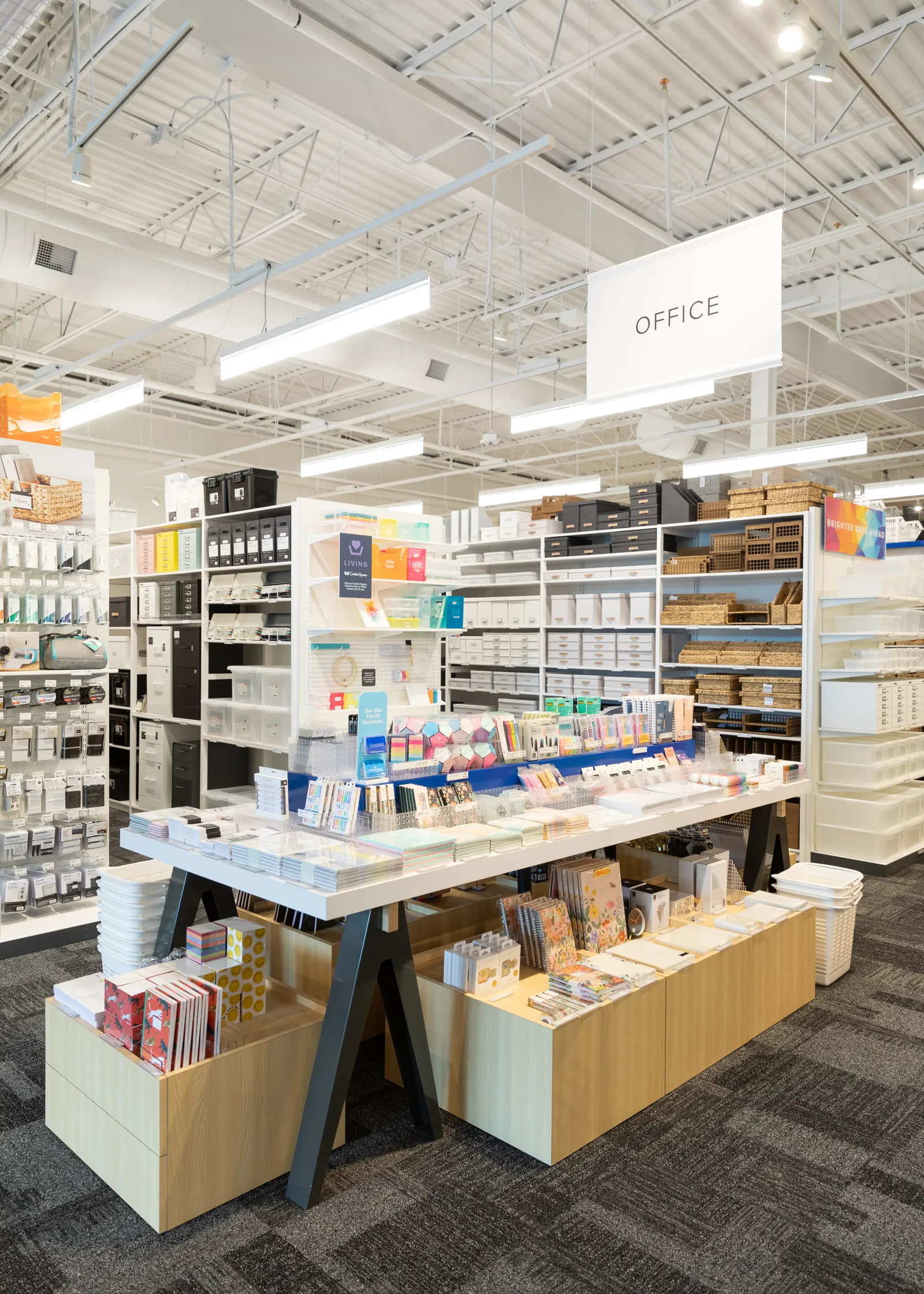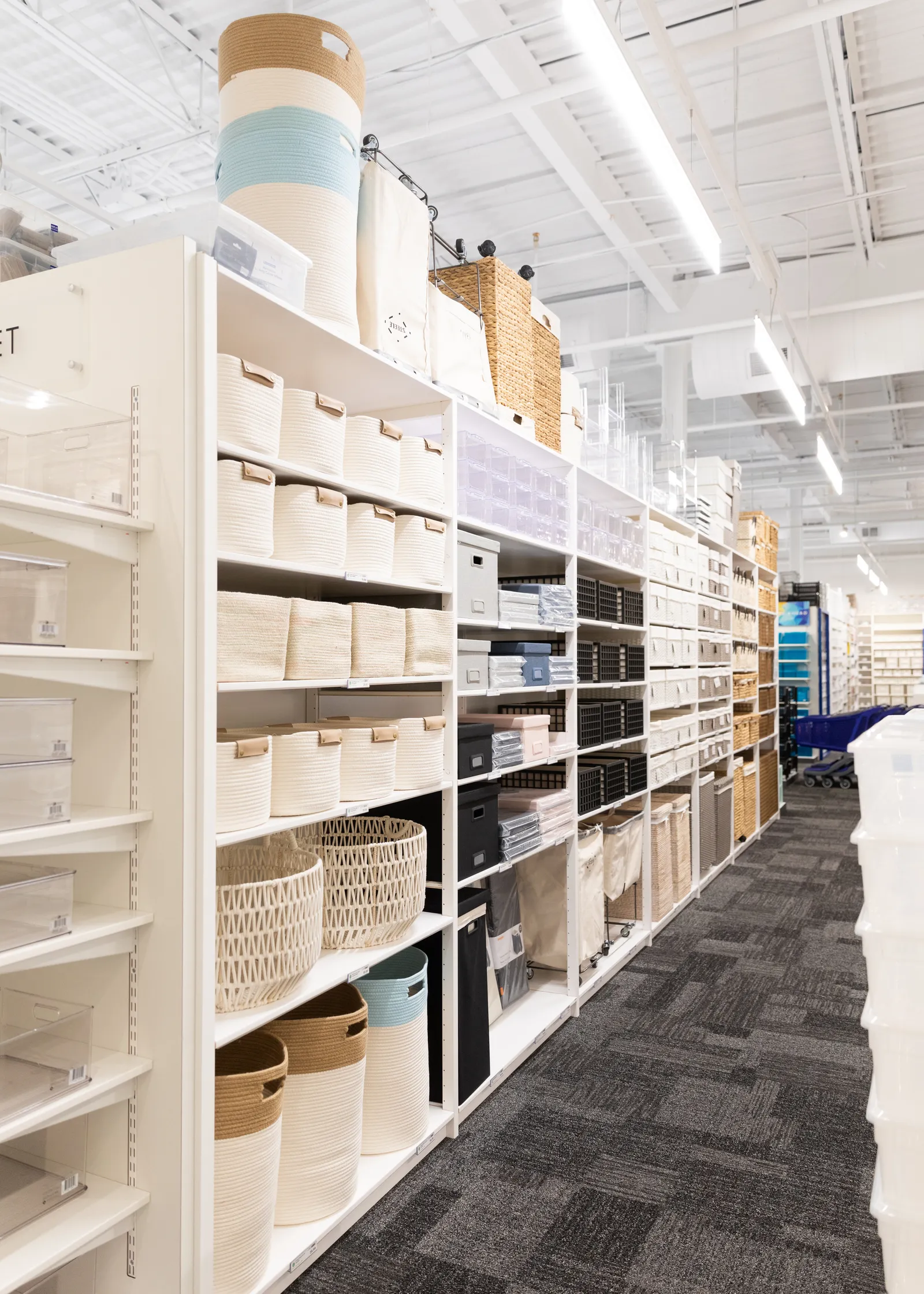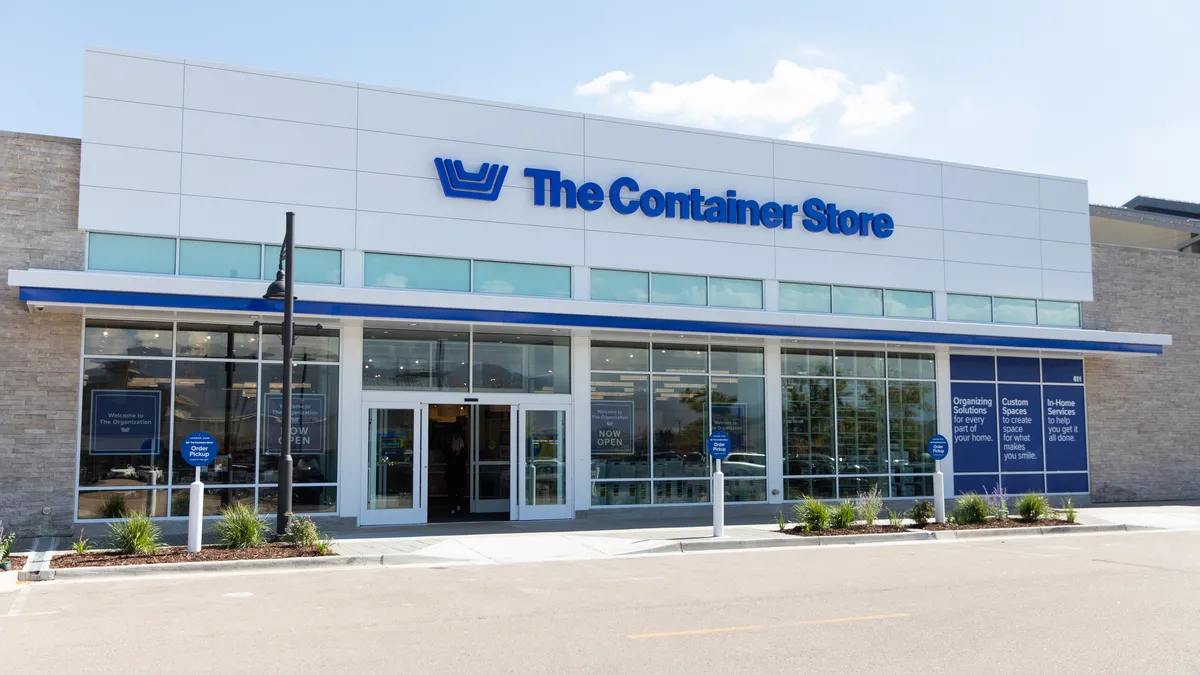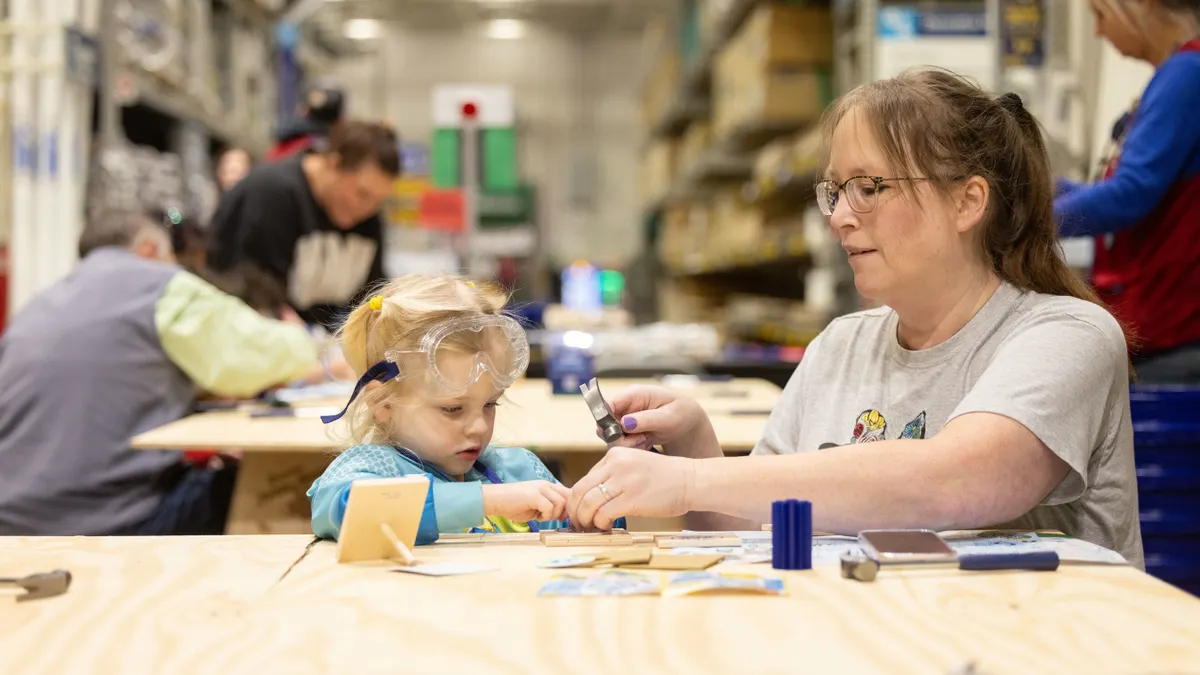It was late 2020, and home retailers were booming from a population that was stuck mostly inside their houses. The COVID-19 pandemic put fresh relevance on revamping furniture, decor and other aspects of the house that made home life more enjoyable, and thus, retailers like Wayfair, Bed Bath & Beyond and The Home Depot thrived.
The Container Store, which focuses particularly on home organization, was no exception. While sales fell nearly 28% in the first quarter of 2020, which came during a period when most retailers had their doors closed, the retailer recovered quickly at the end of 2020 and sales surged in the first half of 2021. By the third quarter, which ended the day after Christmas in 2020, The Container Store was posting 20.5% growth. The fourth quarter was even better, with sales up 30.4%.
It was in this environment that Satish Malhotra took over as CEO, replacing retiring chief Melissa Reiff. Things have cooled down in the home sector since then — The Container Store’s two most recent quarters have revealed sales declines year over year — but Malhotra doesn’t see the current market as much of a concern. In a contracting home environment, The Container Store still gets business from people investing in their homes versus building out new ones, Malhotra said. He does, however, have plans for how to expand the retailer’s reach and engage an incredibly loyal customer base.
“Our [net promoter scores] are near 80, which is unbelievable if you think about it from a retailer point of view,” Malhotra said in an interview in January. “Super proud of that and our ability to engage with customers, convert with them, provide them with an air of excitement and discovery in our stores — so, we've felt that we've made significant progress there.”
The retailer recently launched a tiered loyalty program to engage shoppers further, and Malhotra said customers are regularly graduating from one tier to the next. Members of its loyalty program spend 60% more than non-members, and shoppers that have reached its top “expert” tier spend five times as much as entry-level members do.
Now, the challenge becomes holding onto those customers and growing its following. Malhotra has experience with another group of strongly loyal shoppers, though, thanks to two decades of experience at beauty retailer Sephora. And while the businesses sell different products, Malhotra is banking on his lessons from beauty to freshen up The Container Store’s approach.
The importance of education
The Container Store is aptly named — much of what it sells is vessels for holding various items — but what the company is really trying to sell shoppers on is organization. The retailer made a serious bet on closet organization last year, when it scooped up Closet Works for $21.5 million, hoping to build out its custom closet offerings.
The company’s Custom Spaces business reported comps up 2.1% in the most recent quarter, even while total comps fell 4.3%. But for Malhotra, the opportunity is much bigger than closets. The Container Store can organize almost any space, he argues — customers just need to know that it’s an option. Malhotra experienced that for himself when he joined The Container Store and got his closet redone by the company.
“I walked in just wanting to get my closet done and my in-home designer is like, ‘Well, what are you doing here?’ And I’m like, ‘Well, this is a fireplace nook’ so they built out a fireplace nook for us. Then, ‘What are you doing there?’ ‘That's my entertainment space’ — they built our entertainment space. What are you doing for your garage? What are you doing for your mudroom? What are you doing for your pantry?” Malhotra said. “There's a lot that you can do if you've got the imagination and someone to help you like our in-home designers.”
In fact, the company rebranded its Custom Closets division to “Custom Spaces” in November to better highlight the variety of uses for its organizational tools. Customers have to know what the possibilities are in order to take better advantage of The Container Store’s offerings, but additional education is also necessary. Much in the same way that Sephora teaches classes on how to do certain makeup trends, Malhotra believes The Container Store can show shoppers how to execute their organizational vision.
A beauty shopper hoping to achieve a smokey eye can buy the products themselves, but without proper education on how to apply the makeup, the experience will likely end with a disappointed shopper, Malhotra explained.
“One could argue that there's a similar vein in terms of organization, that: You go in, you buy all of the containers you want to get to get organized, you're ready to take on that project. But yet, you kind of fall short of executing it because you don't have an in-home organizer leading you through that step and understanding how you can really live that organized life,” Malhotra said.
New features on The Container Store’s app also aim to make shoppers’ organizational dreams more achievable. An augmented reality feature allows shoppers to look at their drawers, for example, and see what items would fit inside them. In the same app, the customer can view their rewards and checkout. About 7% of web-generated sales come from the app, Malhotra said, and it converts twice as often as the company’s mobile website.
Expanding the ‘happy place’
Education is the practical side of building sales, but practicality is not the only purchase driver. Beauty is frequently referred to as an emotional purchase because it’s often fueled by the consumer’s desire to feel a certain way: confident, beautiful or healthy, for example. Organization as a category can be emotional as well, Malhotra believes, because “being organized has a transformative impact in your life.”
The Container Store’s collaborations with Marie Kondo and the TV personalities of “The Home Edit” are perhaps some of the best examples of this. Kondo’s Netflix show, “Tidying Up with Marie Kondo,” emphasized discovering items that spark joy and finding comfort by both organizing what you currently have and ridding yourself of the excess.
“The Marie Kondo unlock was very powerful because it gave you permission to essentially edit your possessions. It gave you permission to say, ‘It's OK to let go,’” Malhotra said.

“Get Organized with The Home Edit” likewise emphasized the joy of being fully organized and brought with it a color-coordinated system everyday shoppers could adopt. While these types of collaborations helped show what The Container Store could offer, Malhotra also wants to make sure the retailer develops its own voice and is able to tell its own story.
“We're doing a lot of work within specific markets where we're taking a 360-degree approach within those markets — with connected TV and radio and direct mail and social — because I think it is important for us to tell that story,” Malhotra said. “Collaborations will still exist: We work a lot with influencers, ambassadors … we do a lot of great work with the sneakerhead community, trying to organize their shoes. So we do create these communities out there.”
The quest for a more emotional connection with shoppers is also impacting the retailer’s store fleet. In a panel at the ICR Conference in January, Malhotra noted that the company has expanded its assortment to include items like cleaning supplies, and “high-price” candles and fragrances, which are performing “incredibly well.”
The Container Store has also adopted a new ideal store size, settling on around 15,000 square feet, where its old store format was usually 25,000 square feet. The stores focus on its Custom Spaces division and on curated general merchandise, according to Malhotra. The company is planning to open 10 small-format stores this year, but the format will also make up the majority of the openings within the retailer’s larger strategy to open 76 stores by the end of fiscal 2027.

In thinking through the store experience, Malhotra is focused on the “emotive experience” the stores can bring, which again harkens back to a learning from Sephora.
“Both our customers — whether it was at Sephora or The Container Store — look at those two retailers as really a way to feel good about themselves and feel good about that purchase,” Malhotra said. “Our customers always tell us The Container Store is their happy place. They literally walk in — or at least walk out — feeling happier than perhaps they walk in … How we can impact your life is really important for us versus just selling you a container.”
























